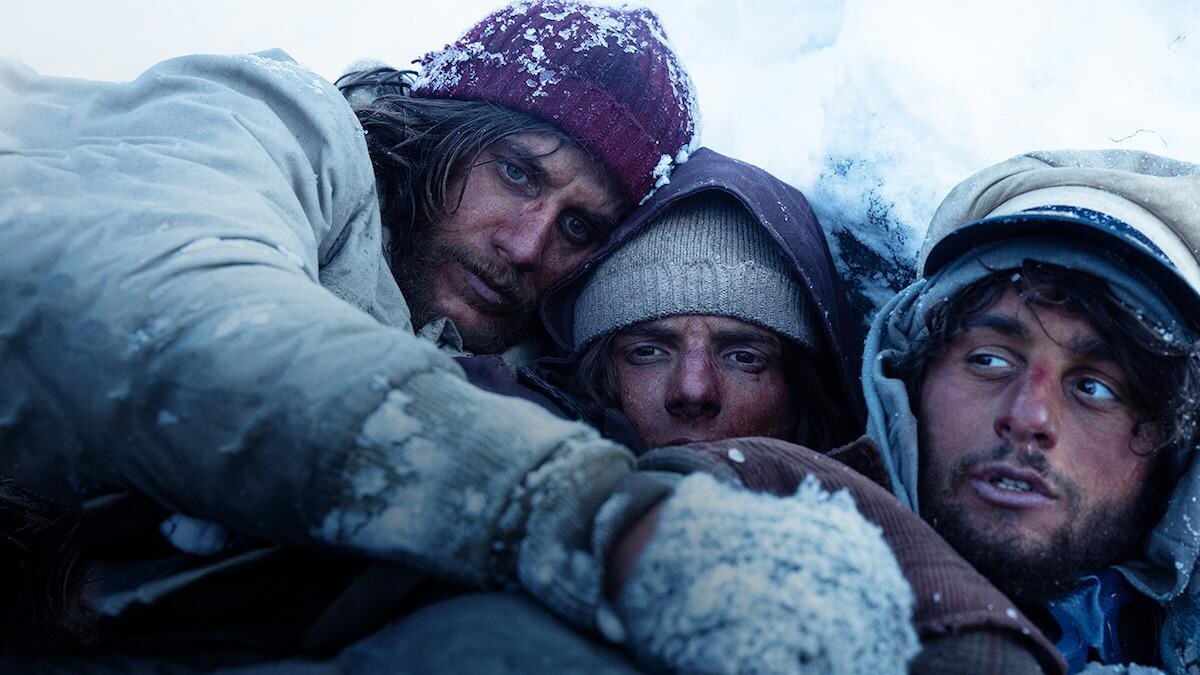
As the camera sweeps across the vast, uninterrupted expanse of the Andean snowscape, the film ‘Society of the Snow’ commences with an understated yet profound declaration of its thematic intent. Director JA Bayona’s cinematic interpretation of the 1972 Andes flight disaster refrains from ornate storytelling, instead opting for a subtle, raw depiction that pays homage to the resilience of the human spirit in the face of insurmountable odds. This piece of cinema stands apart in its refusal to succumb to the sensationalized narratives that typically envelop this historical event. It is a story known for its gravity and has been dissected for its shock factor. However, Bayona’s minimalist touch serves to heighten the extraordinary narrative of perseverance that overcame adversity in one of the most unforgiving environments on Earth.
The film is an adaptation of a Uruguayan book bearing the same title, and it does not take long for its purpose to become evident. Early in the narrative, the audience is intimately acquainted with the members of a rugby team, all of whom are on the brink of boarding the flight bound for Chile that will plummet into disaster. What follows is a catastrophic crash that disintegrates the plane, stranding the team in the brutal cold of the Andes. Over the ensuing two months, the film painstakingly documents their quest for survival – their attempts at self-rescue and the harrowing decisions they face to preserve life amid dwindling hope.
The tale’s conclusion is readily available to the public realm; a simple Google search can reveal the fate of the 40 passengers. Innumerable adaptations, each with their own take on the peculiar dynamics of survival in extremity, have found their way into pop culture. Yet, Bayona’s rendition commands attention, meriting its substantial runtime by affording depth and personality to each character without reducing their plight to mere statistics. Following the traumatic crash, the team’s captain, Marcelo, portrayed with gravitas by Diego Vegezzi, assumes a leadership role. He dispenses critical instructions and fosters hope for a rescue that seems bound to come. However, eleven days in, as casualties of frostbite and starvation escalate, they are greeted by the devastating news that the search for them has been abandoned. Fading hope sees a shift in leadership; another character, Parrado – Agustín Pardella, finding strength amidst personal tragedy, undertakes a daunting 10-day trek in search of salvation.
The narrative is poignantly framed by the recollections of Numa Turcatti, played by Enzo Vogrincic Roldán, who recounts the incident resembling a nightmarish memory. His perspectives highlight the duality of the disaster – while some perceive it as a dire tragedy, others celebrate the miraculous survival of a few. This spectrum of perception is masterfully navigated in the script, which maintains a delicate equilibrium between despair and optimism, despite the narrative’s extensive duration.
What is survival, the film posits, without the sigh of hope? It is this poignant inquiry, set against the backdrop of desolate mountains devoid of human presence, that differentiates ‘Society of the Snow’ from conventional survival narratives. The film delves into the essence of hope, a seemingly elusive quest in an environment where one’s cries are swallowed by the vastness.
‘Society of the Snow’, now available for streaming on Netflix, transcends the confines of a standard tale of survival. It is a contemplative exploration into the indomitable perseverance of the human spirit, a rallying cry to the moving resilience inherent in each of us when faced with profound crises. This distinctive and moving cinematic creation does more than recount an account of survival; it invites viewers to reflect on the unyielding fortitude that lies within the human heart.










